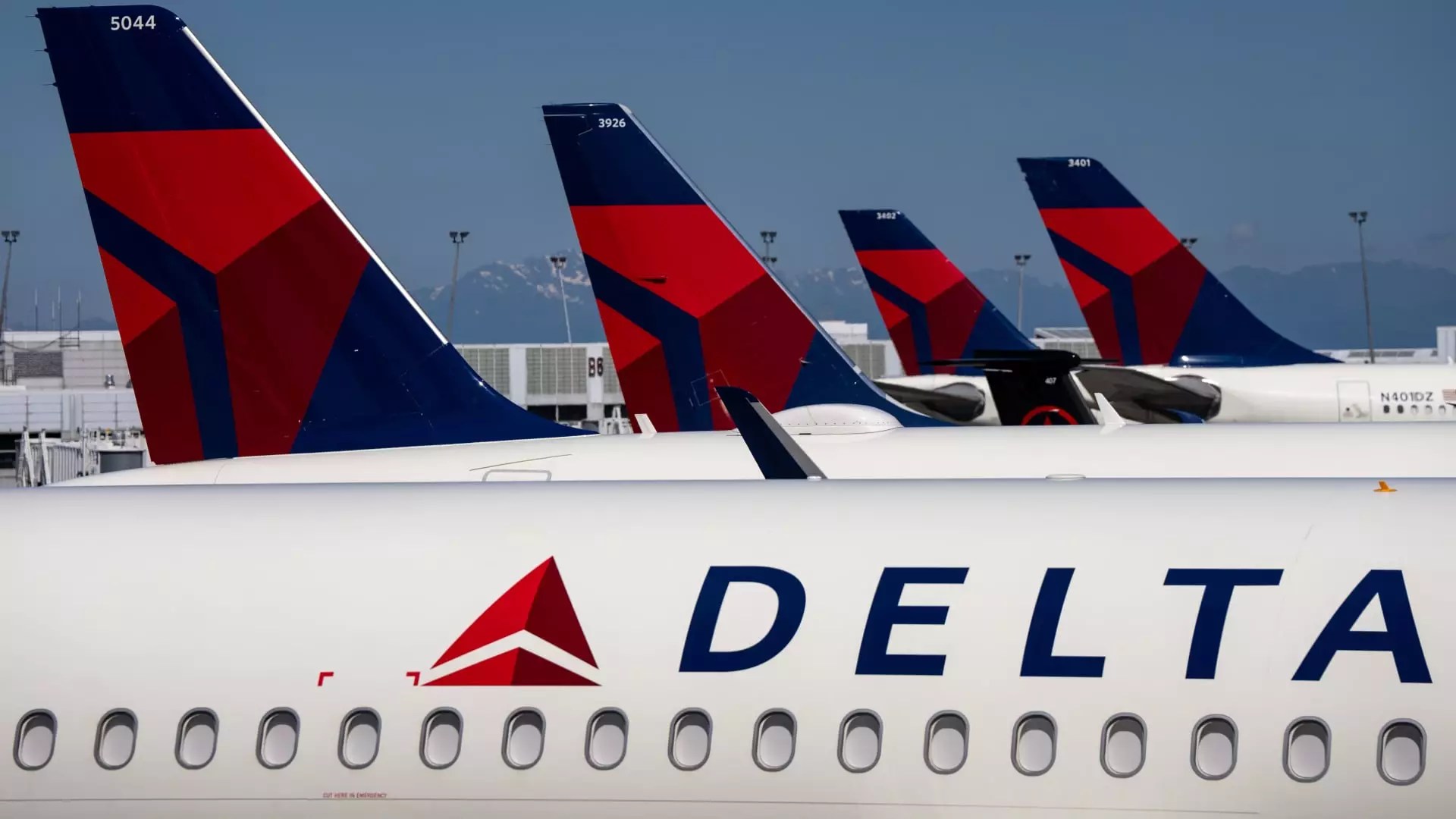The aviation industry, once a strong pillar of the American economy, now faces unprecedented challenges as both corporate and leisure travel demand plummets. Delta Air Lines, often regarded as the most profitable in the U.S., recently made headlines by announcing that it would not expand its flying capacity in the latter half of the year due to disappointing bookings. This move has raised eyebrows and provoked discussions among industry watchers and consumers alike, particularly in light of the broader economic landscape, which many attribute to President Trump’s shifting trade policies. Delta’s CEO, Ed Bastian, cautions that policies affecting global trade and consumer confidence are having dire effects on bookings, leading the airline to take a more cautious approach.
Corporate Confidence Takes a Nosedive
Historically, Delta has been a bellwether for the industry, often leading the way in both profitability and operational strategies. Yet, this recent announcement is symptomatic of something far more concerning than just a change in a company’s quarterly earnings forecast. Bastian explicitly noted a reduction in overall consumer confidence and a dwindling appetite for corporate travel as businesses reassess fiscal priorities amid the uncertainty surrounding government policies and economic forecasts. This iterative process of reassessment reflects a longer-term trend that should be alarming for not just airline companies but the broader market as well.
Delta’s initially upbeat outlook for 2025 has taken a significant hit, suggesting that a change in the administration’s trade stance can ripple through various sectors, impacting employment and travel habits. The fact that corporate travel—a traditionally flourished segment for airlines—is suffering raises important questions about both the current trajectory of the airline sector and the governmental policies that contribute to this instability.
Wall Street’s Shifting Sentiment
Analysts on Wall Street have begun slashing their earnings estimates for airlines as the signs of a downturn become more apparent. Initially optimistic about the potential for growth, many are now scrambling to adjust their projections, which paints a troubling picture of an erosion of trust in both the travel sector and consumer spending habits. The inconsistency in Delta’s bookings serves as a warning bell; the airline anticipated a 3% to 4% increase in capacity for the second half of the year, but now feels compelled to freeze capacity instead. This stagnation signifies not just a downturn but a reactive posture that could hinder growth opportunities indefinitely.
Compounding the issue is the unexpected resilience of international and premium travel segments, which stands in stark contrast to the main cabin bookings that have failed to meet expectations. The data suggest a rift between different strata of the market, wherein higher-paying consumers are less affected by economic uncertainty. This divide could point to an increasing bifurcation in the travel market, where only those with substantial financial resources will engage in air travel while others remain grounded.
Daring to Protect What’s Controllable
In an environment where economic factors are increasingly volatile, Delta seems to be adopting a judicious stance focused on protecting margins and cash flows. Bastian’s assertion that “growth has largely stalled” underscores the need for airlines to recalibrate strategies that account for not only current demand but future economic forecasts as well. Delta is not merely reacting to external pressures; it is strategically pivoting to utilize its expertise to safeguard its core business. This level of strategic thinking is imperative for any company hoping to thrive not just in the airline sector but across all industries facing uncertain times.
Ultimately, Delta’s situation encapsulates the precarious intersection between consumer behavior, corporate demands, and government policies. The airline is navigating a treacherous path, acknowledging the chaos yet determined to seize control over its own financial destiny. As we move forward, it will be crucial to observe how Delta and other airlines adapt to an evolving economic climate characterized by skepticism and cautious consumer behavior. While it’s still too early to determine how the situation will unfold, the implications are undeniably significant and warrant serious contemplation from industry executives and policymakers alike.


Leave a Reply